We’ve all got that one friend. You know, the one who insists they’re gluten-free, dairy-free, or meat-free until they’re halfway through a triple-cheese bacon burger and claiming they’ll suffer for it later. Whether it’s mysterious allergies or trendy food bans, navigating dinner plans with a dietary diva can feel like solving a Rubik’s Cube with oven mitts.
Today’s Original Poster (OP) shared how her close friend’s inconsistent food restrictions led to a birthday dinner disaster. What started as years of empathetic accommodation ended with guilt-tripping and backhanded comments. However, it’s also a masterclass in friendship boundaries, performative behavior, and when “supportive” becomes self-sabotaging.
More info: Reddit
While everyone’s entitled to eat whatever they want, things get murky when those claims start to manipulate others

Image credits: SHVETS production / Pexels (not the actual photo)
The author’s friend has dietary restrictions and couldn’t eat certain things, but she noticed that her friend usually ate those things





Image credit: ophelias_academy

Image credits: KATRIN BOLOVTSOVA / Pexels (not the actual photo)
It wasn’t a problem until she wanted to celebrate her birthday at a particular restaurant, but the friend reminded her she wouldn’t eat what they sold there




Image credit: ophelias_academy

Image credits:Robin Stickel / Pexels (not the actual photo)
This caused the author to change the restaurant, but when they got there, the friend ordered the same things she couldn’t eat




Image credit: ophelias_academy

Image credits: Alex Green / Pexels (not the actual photo)
This upset the author’s boyfriend, and when he brought it to the friend, she became angry and later accused him of ableism
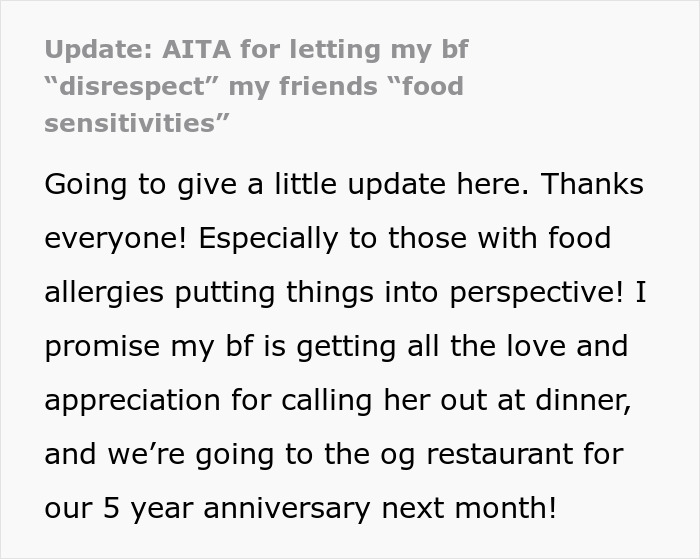
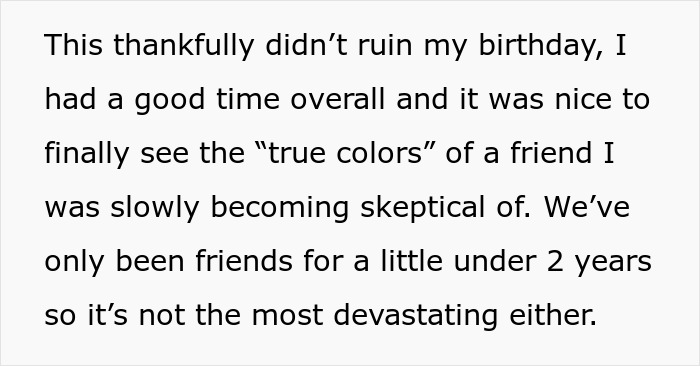
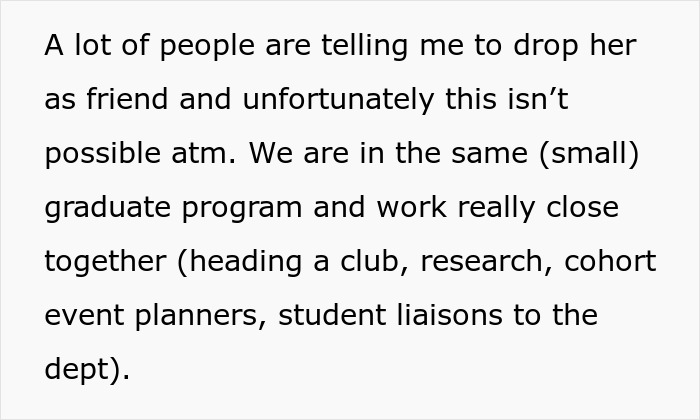
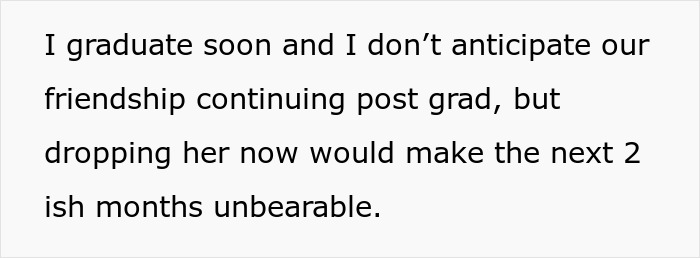
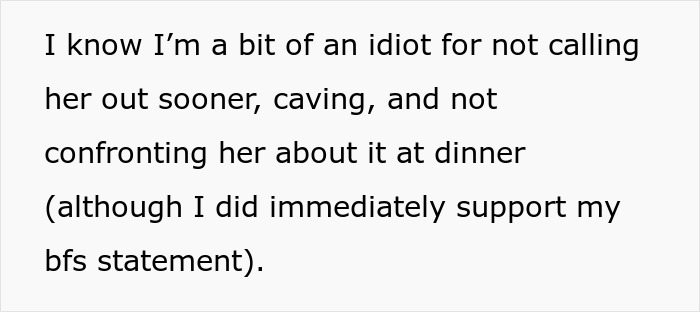
Image credit: ophelias_academy

Image credits: Juan Pablo Serrano / Pexels (not the actual photo)
The friend also demanded an apology from both the author and her boyfriend
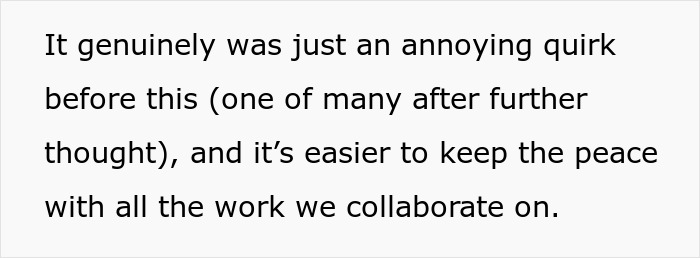
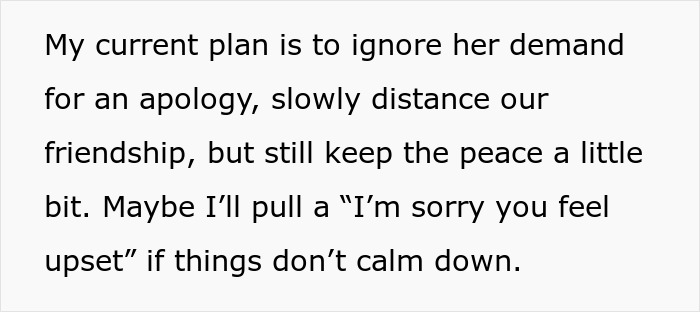
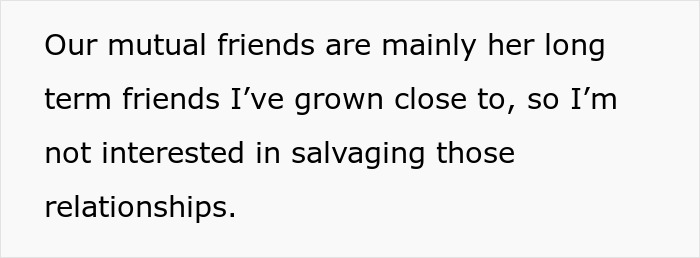
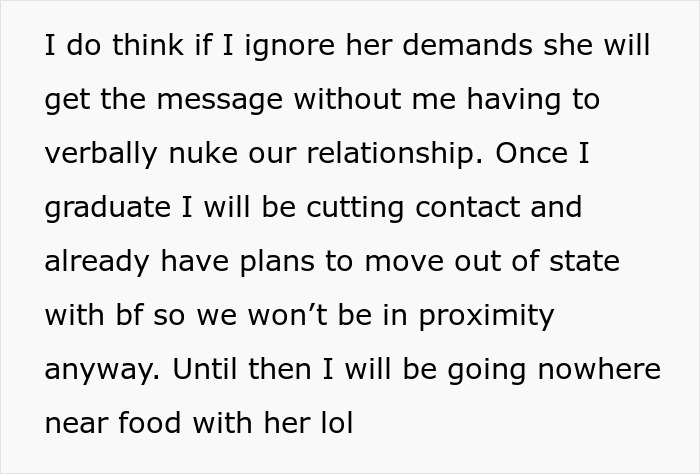
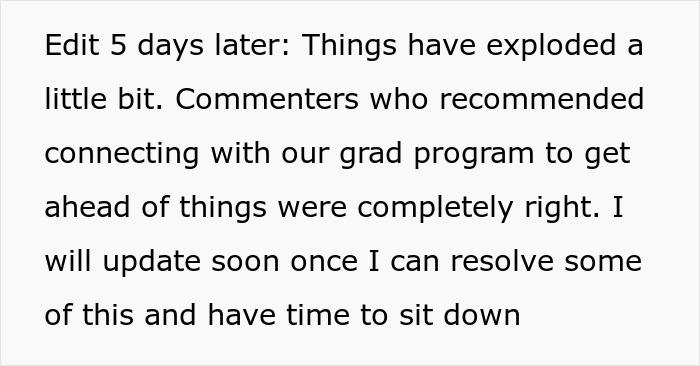
Image credit: ophelias_academy
However, the author refused to apologize because she did nothing wrong and stated in an update that she would keep her distance
From red meat to dairy to beans and corn, the OP had a friend whose dietary needs wouldn’t let her eat meat, burgers, mac and cheese, and more. So, out of kindness, the OP always went the extra mile to ensure meals and restaurants matched her friend’s needs. Every dinner was meticulously planned around what the friend said she could eat.
However, she noticed that, despite the long list of off-limit foods, her friend was often seen eating exactly those things. That was never really a problem until the OP planned to celebrate her birthday. She excitedly picked a restaurant known for its meaty menu, but her friend protested, claiming there was nothing she could eat.
She even joked that her birthday gift would be “going hungry,” which guilt-tripped her into changing the venue. That alone might’ve been tolerable—if not for what came next. At the new, more accommodating restaurant, the friend ordered a cheeseburger, which was the very thing she said she couldn’t eat. That’s when the OP’s boyfriend called her out.
In response to being questioned, the friend claimed she sometimes “cheats” on her diet, but when the boyfriend expressed his doubts about her dietary restrictions, she withdrew, accused the OP and her boyfriend of being disrespectful and ableist, and demanded an apology. Now stuck in a rift between friend groups, the OP is left wondering if an apology is worth the peace.

Image credits: Samson Katt / Pexels (not the actual photo)
According to Food Navigator, some people exaggerate or invent dietary restrictions to avoid judgment and fit social expectations, especially in settings where healthy or sustainable eating is idealized.
They also state that people tend to make “healthier” choices when being observed by others to create a good impression. This insight adds depth to the friend of the OP, whose inconsistent behavior around food might be less about true sensitivities and more about her image.
The OP, on the other hand, was cautious about her friend’s dietary restrictions and accommodated her needs despite it being her birthday celebration, but Healthline suggests it might have turned into people-pleasing. They warn that it can actually backfire and lead to emotional burnout, stress, and strained relationships.
People-pleasing also leads to being guilt-tripped easily, but Calm advises that setting firm boundaries, using assertive communication, and prioritizing emotional independence are good ways to deal with being guilt-tripped. They suggest giving empathetic responses and offering alternatives but also recommend disengaging or educating the guilt-tripper when necessary.
Netizens expressed their support for the OP and applauded the boyfriend for calling the friend out. They also saw the friend’s behavior as attention-seeking and manipulative and encouraged her to set boundaries and distance herself from the friend.
What do you think about this situation? Do you think it’s wrong to question someone’s self-declared food restrictions when their behavior seems inconsistent? We would love to hear your thoughts!
Netizens affirmed that there was no need for her to apologize and that her friend was manipulative
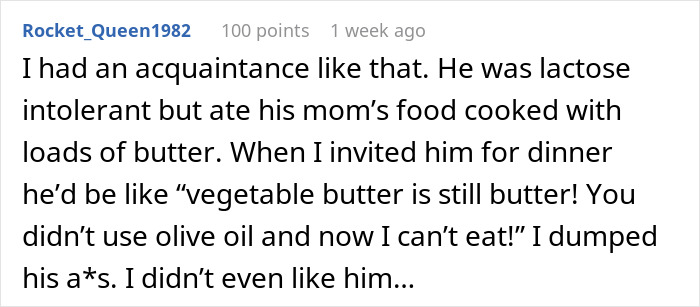
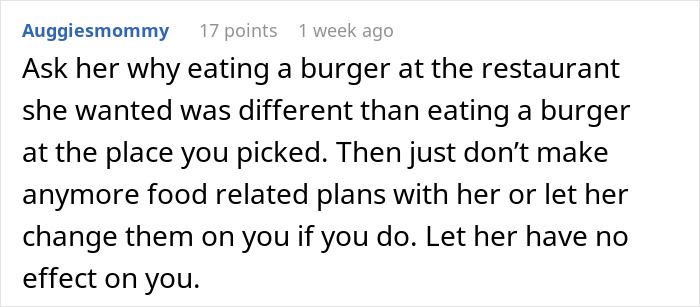
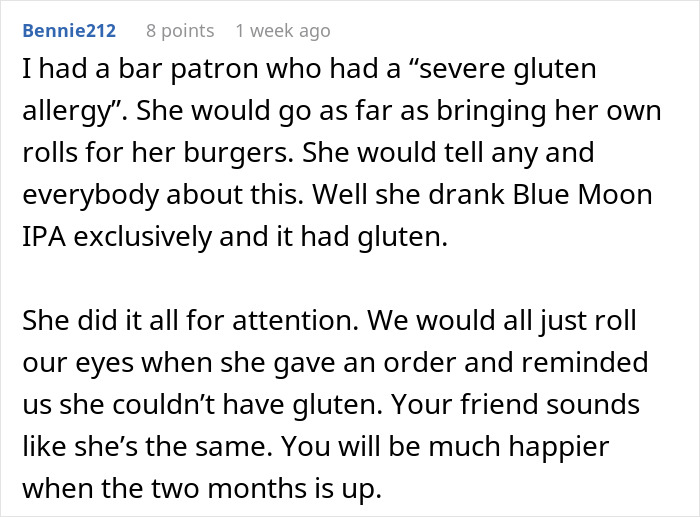

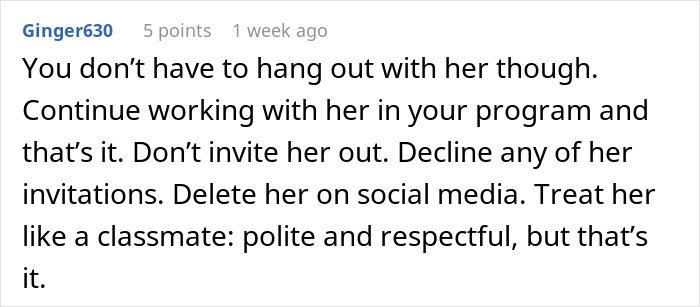
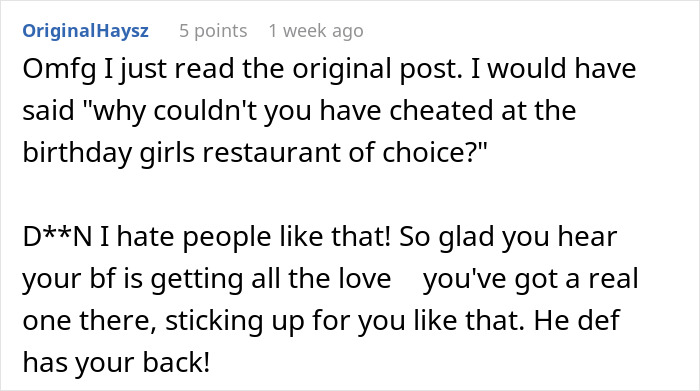

from Bored Panda https://ift.tt/xjqcOiE
via IFTTT source site : boredpanda